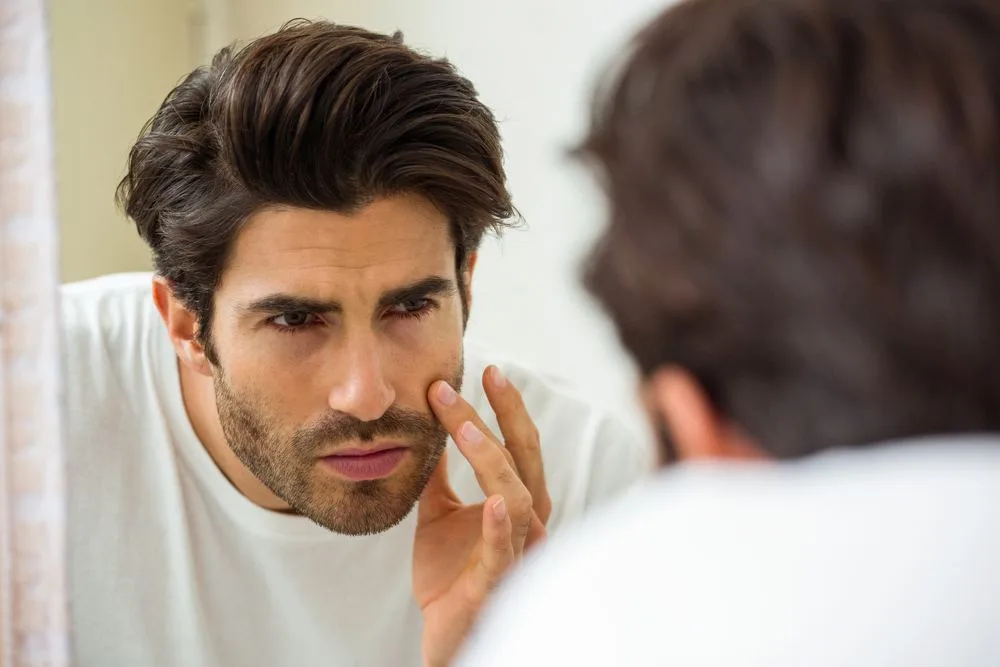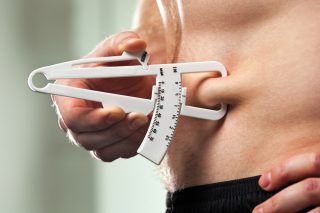When you think of body image issues, or stop to consider those who have difficulty accepting their bodies, often than not, you’ll probably think of a woman. Now, while countless industries have made fortunes out of the disdain that some women hold for their bodies, that doesn’t mean that men aren’t grappling with the same thing.
In fact, male body image is a problem, probably even more so because even with the growth of the body positivity movement, men are frequently left out of the conversation, and this, in turn, can lead them to continue to turn to destructive behaviors in order to change their appearance.
Men and Their Struggles With Body Image
When it comes to men and their concerns about their body image, there are a few areas that stand out.
The first, and probably the most obvious, is muscle dysmorphia, which, according to researchers, is a subtype of Body Dysmorphic Disorder (BDD) characterized by the preoccupation with the idea that one’s body is not sufficiently lean and muscular (1).
Another source of body dissatisfaction for males is the amount of body fat that they have. Sadly, society perceives them to be more attractive if they have less body fat and a chiseled torso.
Similar to women, men also have insecurities about their skin. However, unlike women, some men feel that they can’t use makeup to cover up their imperfections (regardless of the fact that plenty of heterosexual men wear concealer all the time).
In regards to their hair, while some men embrace their graying hair, others aren’t so happy with it. Also, hair loss and balding are other sources of shame for many men.
Lastly, height is another source of content for many men, especially because tall men are often considered attractive, and it is hard for relatively short men to not feel inadequate.
What has research found?
- About one in three people struggling with an eating disorder are male
- Campaign Against Living Miserably (CALM) is an England-based registered suicide prevention group. In conjunction with Instagram, CALM found that 48% of men aged 16-40 had struggled because of how they felt about their bodies.
Do men experience body insecurities differently than women?
Sadly, thanks to the patriarchal society that we live in, men have been conditioned not to talk about their feelings, and being vulnerable about their insecurities isn’t as encouraged as it is with women.
That said, it appears that more and more men are being open about how they see their bodies, as well as how society’s expectations affect them. Comedian and actor Jonah Hill has reached out to fans to ask them to stop commenting on his body, as it’s detrimental to his mental health.
“I know you mean well but I kindly ask that you not comment on my body. Good or bad, I want to politely let you know it’s not helpful and doesn’t feel good. Much respect.” – Jonah Hill, Instagram
What’s causing body image issues in men?
1. Social media
Unsurprisingly, one of the biggest contributors to body insecurities in males is social media. With the likes of The Rock and Chris Evans on Instagram, it’s easy for many men to start to grapple with some self-doubt.
2. The media
While not as obvious as it is for women, men are also bombarded with images of tall and chiseled male superheroes with shredded muscles, and huge arms and chests.
This representation, similar to social media, can create unrealistic expectations and skewed perceptions of what a male body is supposed to look like. In addition to disordered eating, men may also turn to steroids in order to achieve the Thor look.
Do I have body image issues?
You could be struggling with your body image if you:
- Become obsessed with counting calories
- Become obsessed with exercising
- Begin abusing steroids and other muscle-enhancing products
- Spending a lot of time self-scrutinizing in mirrors
What should males do about body dissatisfaction?
The first step would be to admit that you have a problem. Following this, you should then turn to someone that you trust and be open and vulnerable about your struggles.
Throughout this, it’s important to remember that you are more than your body. The end goal shouldn’t be how similar you can look to Chris Hemsworth. Instead, the goal should be you ensuring that your body is both healthy and happy.
Want to know more?
While many are sharing their excitement about Adele’s much anticipated new album, you’ll also come across comments about her weight loss. That said, the 33-year-old revealed that weight loss hasn’t changed how she views her body and body image.
References
Cerea, S., Bottesi, G., Pacelli, Q.F. et al. (2018). Muscle Dysmorphia and its Associated Psychological Features in Three Groups of Recreational Athletes. Sci Rep 8, 8877 (2018). https://doi.org/10.1038/s41598-018-27176-9






![women [longevity live]](https://longevitylive.com/wp-content/uploads/2020/01/photo-of-women-walking-down-the-street-1116984-100x100.jpg)










